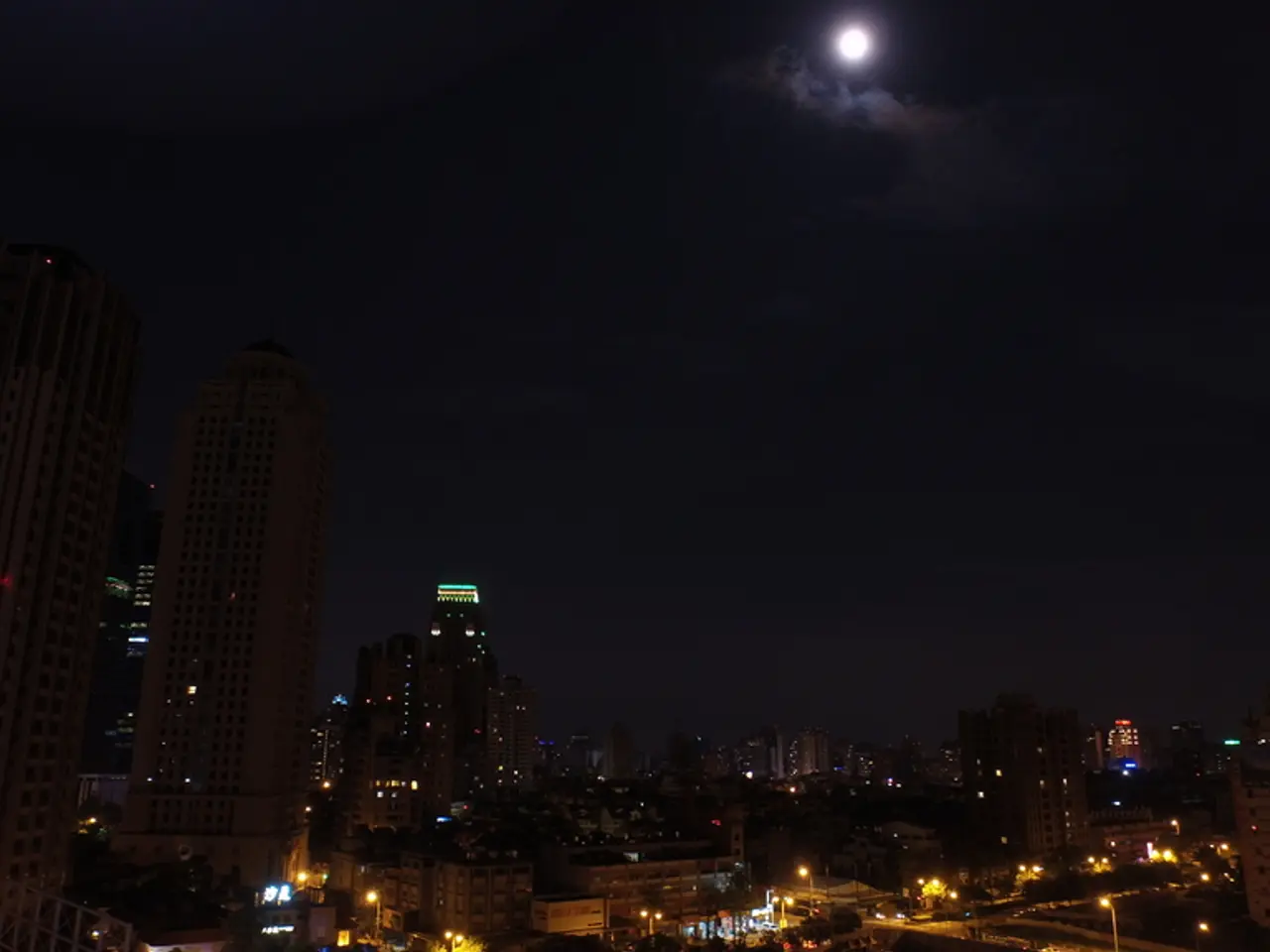Lunar eclipse in full swing this Sunday in Munich, showcasing a spectacle to behold
On Sunday, September 7, 2025, a total lunar eclipse will captivate sky-gazers across Europe, Africa, and large parts of Asia. In Munich, Germany, this celestial event will be visible starting at 19:36 local time.
The Moon will rise in Munich around 19:40 CEST, while the Sun will set at 19:43 CEST. The total lunar eclipse will begin at 19:31 CEST, with the maximum eclipse occurring around 20:11. The Moon, during the total phase, will appear in a rusty red hue, known as a "Blood Moon."
The totality will last until 20:53 CEST, after which the Moon will gradually emerge from the Earth's umbra and transform back into a full moon. The event will end when the Moon leaves the Earth's penumbra at 22:55 CEST.
It's worth noting that the totality will already have ended before moonrise in West Africa and Ireland. The reason the Moon turns red during a total lunar eclipse is due to the Earth's atmosphere scattering and bending sunlight, causing blue light components to be scattered more strongly, while longer-wavelength, red light penetrates into the Earth's shadow.
This spectacle marks a rare opportunity to witness such an event, as the next total lunar eclipse in Europe will not occur until New Year's Eve 2028. In addition, there will be a partial lunar eclipse in Europe on August 28, 2026, during which the moon will only partially enter the Earth's shadow.
So, mark your calendars and prepare for a mesmerising celestial display on September 7, 2025. The total lunar eclipse promises to be a sight to behold, offering a unique blend of science and beauty in the night sky.
Read also:
- Nightly sweat episodes linked to GERD: Crucial insights explained
- Antitussives: List of Examples, Functions, Adverse Reactions, and Additional Details
- Asthma Diagnosis: Exploring FeNO Tests and Related Treatments
- Unfortunate Financial Disarray for a Family from California After an Expensive Emergency Room Visit with Their Burned Infant








